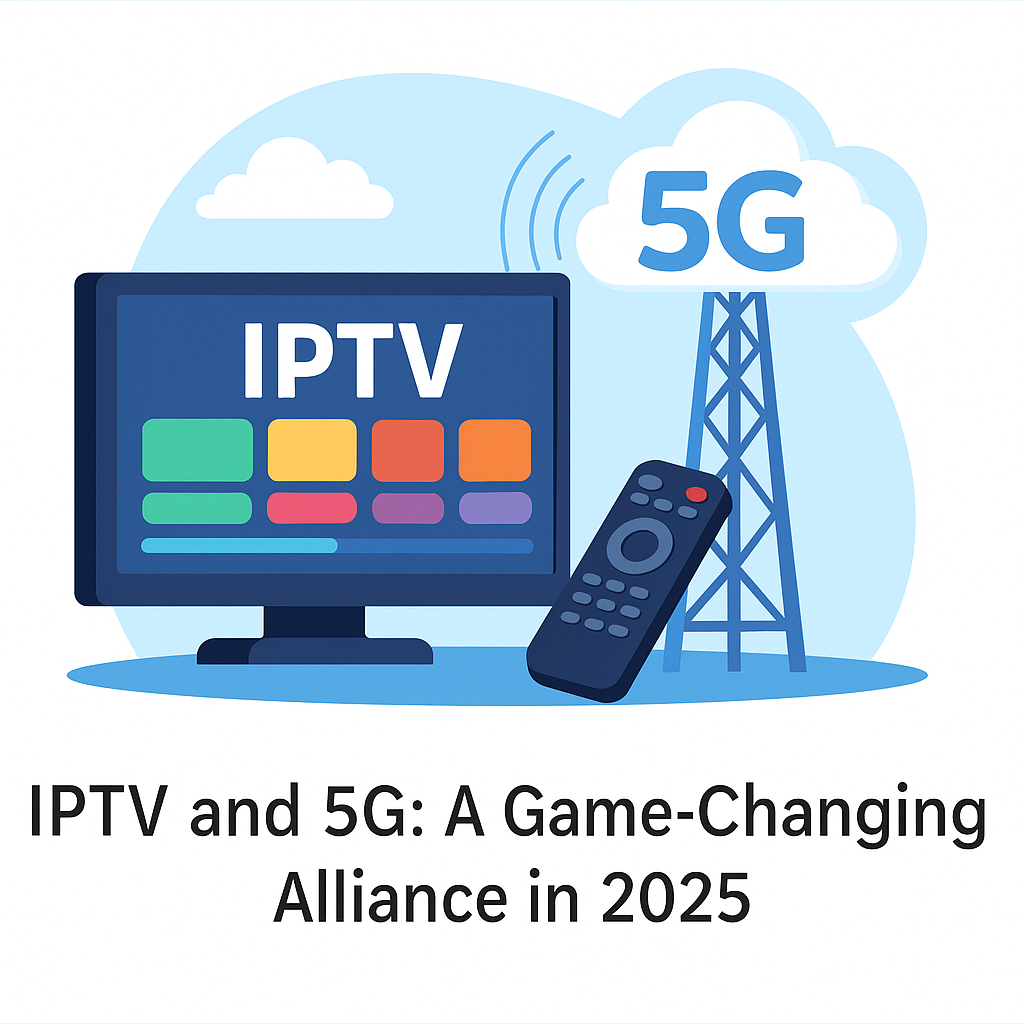
The future of digital entertainment is being redefined at lightning speed. One of the most significant partnerships shaping this evolution is the synergy between IPTV (Internet Protocol Television) and 5G technology. In 2025, this alliance is no longer a theoretical advancement—it’s a real-world transformation changing how, when, and where we consume content.
What is IPTV?
IPTV is a system where television services are delivered using the Internet Protocol suite over a packet-switched network such as a LAN or the Internet, instead of traditional terrestrial, satellite signal, and cable television formats.
What is 5G and Why Does It Matter?
5G is the fifth generation of mobile networks, offering significantly faster speeds, ultra-low latency, and massive connectivity. For IPTV, this means:
- Seamless 4K and 8K streaming
- Real-time content delivery
- Enhanced mobile viewing
- Reliable performance in high-density areas
Key Benefits of the IPTV + 5G Alliance
1. Zero Buffering, Ultra-HD Streaming
5G’s high-speed and low-latency networks eliminate the traditional issues of buffering, making 4K/8K live streaming via IPTV effortless, even on the go.
2. IPTV Everywhere
Thanks to 5G, IPTV is no longer confined to homes. Whether you’re on a train, in a café, or walking in a park, IPTV follows you with uninterrupted streaming.
3. Faster Content Load and Channel Switch
Channel-switching time and content buffering drop drastically—creating an instant and smooth experience similar to traditional TV, but smarter and more responsive.
4. Improved Cloud DVR and On-Demand Services
With 5G, IPTV platforms can offer advanced DVR functionality and faster on-demand content delivery with better compression and minimal latency.
5. Enhanced Multi-Device Streaming
5G supports the simultaneous connection of multiple devices without performance drops, ideal for households streaming IPTV on smart TVs, phones, tablets, and laptops at the same time.
Industries Impacted by the Shift
- Entertainment: More interactive, immersive shows and live events
- Sports: Real-time multi-angle broadcasting, instant replay in high resolution
- Education: Live, on-the-go video courses with zero lag
- Gaming: Cloud-based gaming integration with IPTV services
Challenges to Watch For
- Infrastructure Costs: 5G infrastructure is still rolling out, and full global availability remains uneven.
- Data Consumption: Higher-quality streams mean heavier data usage, which could affect users with limited plans.
- Security: Both IPTV and 5G networks need to double down on cybersecurity to avoid risks related to hacking and data theft.
The Future of IPTV with 5G
The IPTV and 5G alliance isn’t just about convenience—it’s about innovation. We’re entering an era where content will be personalized, location-aware, and instantly accessible, regardless of the device or connection point.
In 2025 and beyond, this combo will likely power the rise of AI-driven viewing experiences, holographic broadcasts, and highly immersive AR/VR integrations.
Conclusion
IPTV and 5G are not just evolving; they’re revolutionizing the entertainment landscape. Their union is a blueprint for a faster, more flexible, and user-centric media experience. For content providers and viewers alike, adapting to this trend is no longer optional—it’s the new standard.
